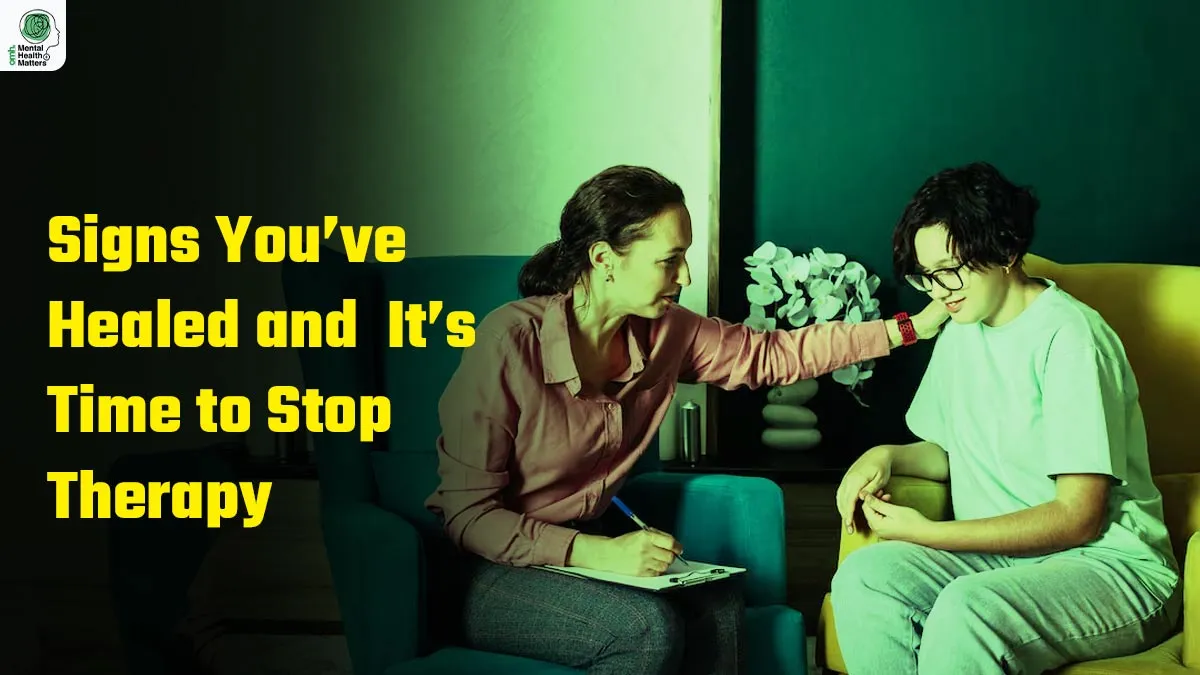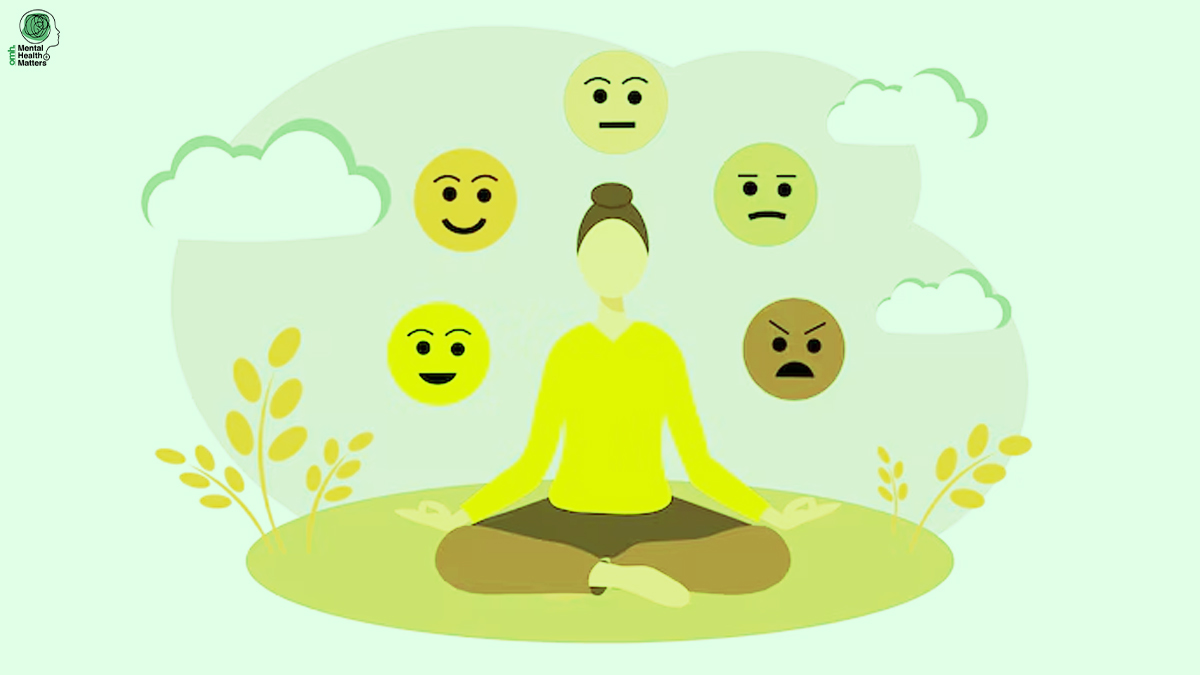
How can you tell when you’ve reached a point of healing and it’s time to stop therapy? Healing is rarely a straight path. It’s a journey full of ups and downs, where you make progress, face challenges, and learn new things along the way. For many, deciding when therapy has served its purpose can feel like a tough decision. It's not always clear, as healing isn't one-size-fits-all. We spoke to Archana Singhal, Counsellor and Family Therapist, Delhi, who listed key indicators that show you're making progress and might be ready to take the next step in your healing journey.
Table of Content:-
CHECK YOUR
MENTAL HEALTH

“Healing is defined as the process of becoming sound or healthy again, but healing can mean different things about what is being healed. By focusing on our emotional balance, we can find our footing before we begin to address relationships and situations in our lives,” said Singhal.
Signs That You Are Healing
Signs that show us that we are on the right track, as listed by Singhal are as follows:
Acceptance of Your Experiences

One of the first signs that healing is taking place is a shift in your relationship with your experiences. “What once scared, overwhelmed, or consumed you, now feels more manageable and acceptable. Instead of resisting or denying your pain, you begin to accept it as part of your story,” said Singhal. The fear that once clouded your thoughts starts to dissipate, and you find the strength to sit with your emotions without them controlling you. This sense of acceptance is a clear indication that you are making progress.
Finding Meaning Beyond Your Pain
Healing also involves recognising that there is life beyond your brokenness. Though the scars may persist, they no longer shape your identity. You begin to see that your pain has shaped you, but it does not control your future. You begin to channel your emotions in a way that empowers you, rather than draining you. Your healing is not about erasing the pain but making it work for you, transforming it into a source of strength and growth.
Also Read: Mental Health Matters: Expert Explains When To Seek Therapy For Mental Health
Increased Emotional Regulation

As you continue on your healing journey, you’ll notice that you are more emotionally regulated. You’re no longer constantly caught up in cycles of emotional overwhelm. The narrative that once focused solely on your suffering begins to shift. “You start to talk more about your happiness, your passions, and your aspirations, instead of dwelling on the pain you’ve endured. You might notice that your physical symptoms of distress, such as chronic pain or fatigue begin to ease,” added Singhal. Your emotional balance is restored and you find yourself enjoying life more fully. The emptiness that once seemed so pervasive starts to give way to a deeper sense of fulfilment.
The American Psychological Association states that:
Around 50% of individuals feel better after 15-20 therapy sessions.
Certain short-term therapy methods may yield noticeable results within just 12-16 sessions.
More complex psychological conditions or certain personality disorders may require longer treatment, typically lasting between 12-18 months.
Those dealing with chronic conditions may need extended and more intensive therapy, depending on personal preference or advice from a therapist or psychiatrist.
When It’s Time to Stop Therapy
Knowing when to stop therapy can feel just as complicated as the healing process itself. While it may seem like an abstract concept, there are clear signs that can help you determine if you have reached the end of your therapeutic journey. Here are a few indicators that you’ve made significant progress and may be ready to continue on your own:
Achieving Your Therapy Goals

“One of the clearest signs of healing is when you feel you have met the goals you set for yourself at the beginning of therapy. As the best judge of your thoughts, feelings, and experiences, you'll have a sense of when you've accomplished what you set out to do,” said Singhal. Whether it's learning to manage anxiety, overcoming past trauma, or improving your emotional regulation, achieving these goals is a key marker of healing. Logistical issues, like scheduling conflicts or financial constraints, can also be legitimate reasons to discontinue therapy, as stated in Psychology Today.
Also Read: What To Do If You Can't Afford Mental Health Therapy
Improved Quality of Life
Another clear indicator that therapy has been effective is when you notice tangible improvements in your daily life. Since starting therapy, your overall mood may have lifted, and your day-to-day experiences may have started to feel lighter and more manageable. “You may find yourself engaging in activities that once felt impossible, like reconnecting with friends, taking up hobbies you enjoyed before, or simply embracing the small pleasures of daily life,” added Singhal. The symptoms or barriers that previously hindered you from enjoying life seem less overwhelming, and you start to feel more like yourself.
[Disclaimer: This article contains information provided by an expert and is for informational purposes only. Hence, we advise you to consult your professional if you are dealing with any health issues to avoid complications.]
How we keep this article up to date:
We work with experts and keep a close eye on the latest in health and wellness. Whenever there is a new research or helpful information, we update our articles with accurate and useful advice.
Current Version